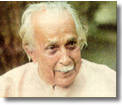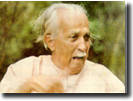| Lettered and unlettered alike, especially the tribals and poor cultivators, regarded him as an unfailing friend in their fight against authority and a symbol of incorruptible rectitude. He won every kind of honour open to an author in India-- the awards and fellowships of the Sahitya Akademi, as well of the Sangeet Natak Akademi, the Jnanpith prize and the Tulsi Samman, honorary doctorates from a dozen universities and the Padma Bhushan from the President of India (which he returned during the Emergency). But he remained a rebel and an anti-establishment nonconformist. In his early years he had described himself as an "ass that kicked all round." With age the metaphor changes but his outlook remained that of a fighter. He was a lion that roared at every injustice.
Looking at his output one wonders whether a single individual could have produced so much even in a long lifetime. His work includes 42 novels, 31 plays, four collections of short stories, six books of essays and sketches, thirteen books on art, including a history of world art and an authoritative work on Chalukyan sculpture and architecture, a standard treatise on the Yakshagana, with which dramatic form his name is identified, a three volume book of knowledge for children, a four volume encyclopedia on science for grown ups, 240 books for children and neo-literates. sixteen translations, including one of Rachel Carson's The Sea Around Us, six books of travel, a few biographies, an autobiography, which he calls Ten Faces of a Crazy Mind, and a book setting forth his philosophy of life. In addition compilation of his random articles and speeches numbering a couple of thousand are being published. So far eight of these anthologies have come out.
He had published two books of poems, the first a slender collection of national songs in 1923 and the second of poems written in Latin America when travelling with his Yakshagana troupe. But such is the state of inter-state literary commerce in India that only five of his novels have been translated into English although the number of translations into other Indian languages stands at 32. His treatise Yakshagana and his autobiography are available in English. So is the book in which he states his credo.
| |







